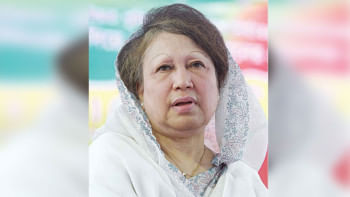On Hindu women’s right to property

According to classical Hindu law, all daughters of a man are not equally eligible to inherit. Unmarried daughters and married daughters with sons can inherit, while childless widowed daughters or daughters having no son or with no possibility of having sons are excluded.
A Hindu woman, even if she inherits, has limited rights to her property in the form of life interest (i.e. on her death, the property reverts back to the next heir of the person she had inherited the property from). Widows inheriting properties from their husband also inherit on limited rights (i.e. life interest).
The passing of Hindu Widow’s Remarriage Act 1856 ended the age long embargo on widow remarriage which is also applicable to Hindus of Bangladesh. Therefore, the Hindu women in Bangladesh can validly remarry after their husbands’ death. But by contracting such a marriage a woman ceases her claim over her deceased husband’s property (Hindu Widows ‘Remarriage Act, 1856, Section 2).
India has brought significant changes in the Hindu personal law in pursuance of a number of laws enacted in the 1950s. In accordance with the Hindu Succession Act, 1956, the property of a male Hindu devolves in equal shares between son, daughter, widow and mother. This implies that this piece of legislation has dispelled the hitherto existing inequality and that the male and female heirs are now treated equally without any distinction in India. The Succession Act 1956 abolished the limited estate for female heirs & they now have the right to deal freely with and dispose of in any manner any kinds of property inherited by them.
Bangladesh is one of the 160 countries that ratified the Convention on the Elimination of all kinds of Discrimination Against Women (CEDAW) which aims to eradicate all sorts of discrimination against women all over the world. The Constitution has also enshrined principles of non-discrimination on the ground of religion, sex, race, caste etc among the citizens of Bangladesh under Articles 27, 28 and 29. Nonetheless, in Bangladesh no significant change has occurred under Hindu law. It is very regretful that still Hindu women are facing barrage or discrimination while claiming their property rights not only the ground of sex but also on the ground of religion.
It is obvious that Bangladesh is under an obligation to enact law or to frame such policies or to reform the existing Hindu personal laws that will eliminate all sorts of discrimination faced by women where the supreme law of the land has guaranteed equal right of men and women.
Nusrat Zahan Rubaiya Student of law, Jagannath University, Dhaka.

 For all latest news, follow The Daily Star's Google News channel.
For all latest news, follow The Daily Star's Google News channel. 



Comments